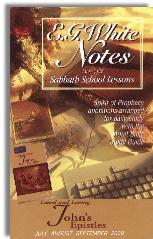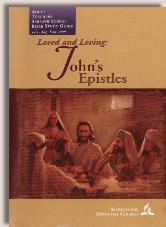|
||||||||||||||
Commentary on "Walking in the Light:
Keeping His Commandments"
Day 3: Monday, July 20, 2009
Overview
This lesson is all about keeping the 10 Commandments, the Old Covenant law. It correlates “keeping the law” with our knowledge of God. It states that the Bible says that we’re liars if we profess to know God but don’t keep the commandments. If we truly love someone, our behavior will follow.
Problems
The main problem (as in previous lessons and in following ones as well) is that they equate every term “command” or “commandment” to mean the Old Covenant 10 Commandments. Many places in the Bible it plainly explains what these “commands” are in light of the New Covenant and Jesus (Acts 15:5, 10, 11). If you follow John 15:10 further (through verse 17) it explains what the command is—twice! Gal. 6:2 states that fulfilling the law of Christ is to carry one another’s burdens. Gal. 5:14 says, “For the entire law is fulfilled in one statement: Love your neighbor as yourself.” It goes on to say in vs. 18, “But if you are led by the Spirit, you are not under the law.” 1 John 3:21-24 says,
“Dear friends, if our hearts do not condemn us, we have confidence before God, and can receive whatever we ask from Him because we keep His commands and do what is pleasing in His sight. Now this is His command: that we believe in the name of His Son Jesus Christ, and love one another as He commanded us. The one who keeps His commands remains in Him, and He in him. And the way we know that He remains in us is from the Spirit He has given us.”
John 15:17, “This is what I command you: love one another.” Following these commands is what is mandated under the New Covenant. The 10 Commandments were given (as a tutor) to the Israelites specifically and were never meant for New Covenant Christians/Gentiles. 1 Tim. 1:3-11 even states that the law wasn’t meant for righteous people but for the lawless and rebellious. Righteousness came through Christ, not the law (Gal. 2:21; 3:10-26). Seventh-Day Adventist theology tries to “marry” the freedom of the New Covenant with the bondage of the Old Covenant—it doesn’t mix. One was the precursor to the other and the New Covenant is superior to the Old (Heb. 7:18, 19, 28; 9:15-20; 10:1-10).
Summary
- “command” or “commandment” in the New Testament doesn’t = 10 Commandments. In most places the “command” is explained or reiterated in context.
- The New Covenant law is much simpler and less complicated—it assumes that the believer has the Holy Spirit to “teach him all things”. 1 Tim. 1:3-11 states that the law wasn’t meant for righteous people. The Israelites (to whom the 10 Commandments were given) were rebellious and didn’t have the benefit of the Holy Spirit like we do as New Covenant believers.
- The fourth commandment is never mentioned as a commandment to keep in the New Testament. It was given to the Israelites only as a sign between them and God.
- Combining/marrying the Old Covenant with the New Covenant doesn’t work. It’s like a will—when a new one is made (updated) the old one is then null and void. The new one is more relevant based on a more current situation.
Copyright 2008 BibleStudiesForAdventists.com. All rights reserved. Revised July 23, 2009. This website is published by Life Assurance Ministries, Glendale, Arizona, USA, the publisher of Proclamation! Magazine. Contact email: BibleStudiesForAdventists@gmail.com.
The Sabbath School Bible Study Guide and the corresponding E.G. White Notes are published by Pacific Press Publishing Association, which is owned and operated by the Seventh-day Adventist church. The current quarter's editions are pictured above.
Official Adventist Resources
Standard Edition Study Guide Week 4
Teacher's Edition Study Guide Week 4
Easy Reading Edition Study Guide Week 4
Search the Complete Published Ellen G. White Writings


